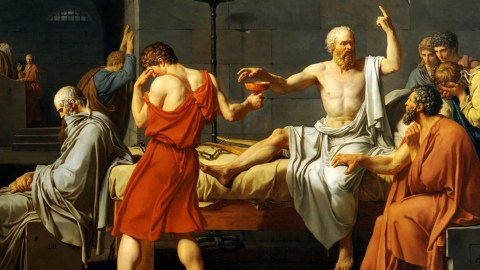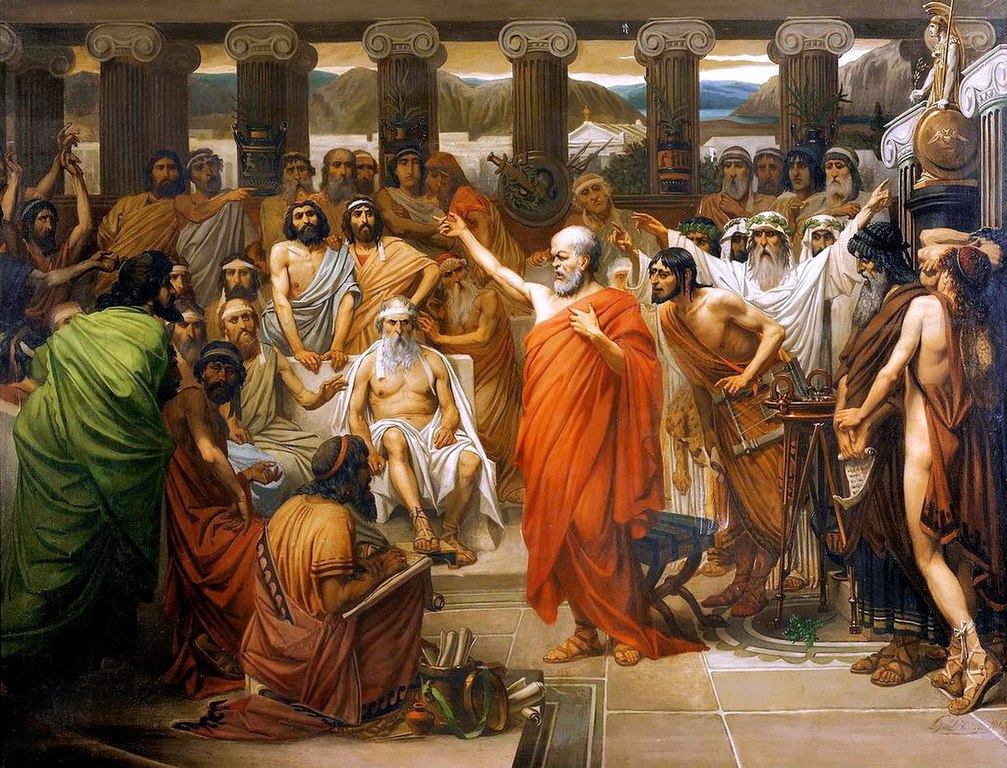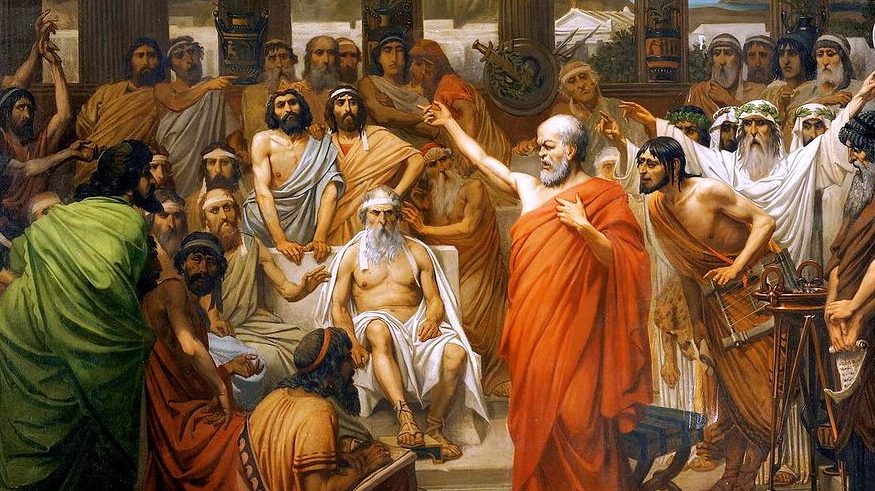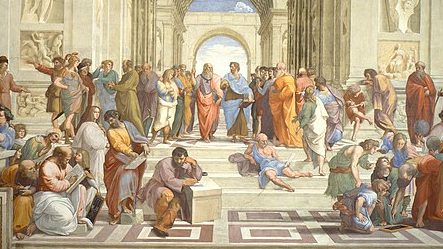The real reason Socrates was given the death sentence

- In his trial, Socrates was charged with teaching the youth to “make weaker arguments appear stronger” and believing in idols or gods not approved by the state.
- However, his real “crime” was interrogating the Athenian class of “experts” and exposing their ignorance.
- When Socrates suggested that the state subsidize him for his duty to truth, it gave him the death penalty instead.
The Apology is one of Plato’s earliest known dialogues. Socrates is on trial for blasphemy charges and corrupting the Athenian youth in this literarily rich text. These charges involved teaching the youth to “make weaker arguments appear stronger” and believing in idols or gods not approved by the state. In Aristophanes’ play The Clouds, Socrates’ “sophistry” is amusingly satirized as the philosopher tricking the youth into paying him to teach them subversive childishness, such as farting instead of arguing.
The unfortunate effect this and other hostile works of art and theater had was to amplify the beliefs that most Athenians, especially older ones, already held — namely, that this 70-year-old man was a danger to the state and must stand trial. But how did Socrates get an entire city to despise him? What “idol” did Socrates worship, and what wicked things did he teach the youth of Athens?
Socrates and the Oracle
In ancient Greece, the Oracle of Delphi was a place people visited for guidance and wisdom. No one quite knows what this oracle was — it could have been a rambling priestess high from huffing toxic fumes or simply a feeling of inspiration akin to a “conscience.” In some translations of the Apology, it is referred to as a “god.” In any case, it was seen as a guide to conduct, and an ancient Greek could not go wrong by following it.
During the trial, Socrates relays that his friend, Chaerephon, who had since passed away — but whose brother was present to testify on his behalf — once went to the Oracle to ask who was the wisest of all in Athens. Chaerephon told Socrates that the Oracle said that he, Socrates, was the wisest and most knowledgeable of all in Athens. Socrates was perplexed because he had considered himself completely ignorant and unwise. Given that ignorance, what could the Oracle think was wise about Socrates? This question eluded Socrates, so following his friend’s story, he sought to refute this quasi-god — which, in Athens, was considered an irrefutable source of divine wisdom.
To do this, Socrates sought out those conventionally thought to be wise or knowledgeable and got them to relay their wisdom and knowledge through a series of questions. What Socrates found through questioning poets, politicians, merchants, and artisans was that such individuals were highly adept in certain respects — namely, those related to their specific trade or craft — but that, based on this limited wisdom, they erroneously came to believe that they were knowledgeable in all respects. To expose their lack of understanding, Socrates merely had to ask them questions outside their limited domain of knowledge, and they would go on to confidently spew nonsense.
By seeing what wisdom did not consist of, Socrates could resolve what initially appeared to him as an absurdity from the Oracle. Essentially, Socrates’ admission that we are eternally ignorant was genuinely the Oracle’s definition of wisdom and knowledge. However, interrogating the Athenian class of “experts” and exposing their ignorance was sufficient for Socrates to be charged with corrupting the Athenian youth and blasphemy.
Socrates the instigator
Given Socrates’ “religious duty to truth,” he couldn’t help but refute the charges in court by using the same type of questioning (now known as the Socratic method) that landed him there in the first place. Socrates himself said the Oracle had been guiding him all along in this duty, but that hitherto it had only appeared as a “voice”:
“You have often heard me speak of an oracle or sign which comes to me… The sign is a voice that comes to me and always forbids me to do something which I am going to do but never commands me to do anything, and this is what stands in the way of my being a politician.”
In other words, his inability to conceal his authenticity is because of such guidance, which Socrates associates with the Delphic Oracle’s divinity. Socrates’ authentic self — the expression of his “religious duty to truth” — is that of a man who always inquires, even if it is dangerous.
As Socrates argued with prosecutors, it increasingly enraged them. Finally, at the end of the trial, Socrates began suggesting, ironically, punishments for his “crime.” At first, the punishment was to be a hefty fine, and his friends were willing to cover for him. Then, however, Socrates suggested the state either reduce the fine or subsidize his “religious duty.” They give him the death sentence, instead.





